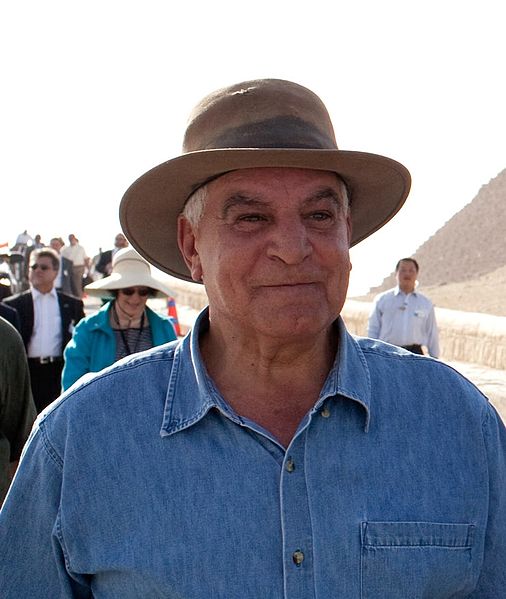
Egyptian archaeologist and former Minister of Antiquities Zahi Hawass will go on a series of promotional tours internationally, the Ministry of Tourism and Antiquities announced.
Organized by the Egyptian General Authority for Tourism Promotion, this aims to take advantage of Hawass’s world-renowned fame and encourage tourism to Egypt.
Hawass will begin these tours with a visit to the Baltic region, touring at Estonia, Latvia and Lithuania from September 10-13.
He will then head to the Danish capital, Copenhagen, for a two-day visit.
Speaking on these tours, Hawass called them an excellent opportunity to promote cultural tourism in Egypt.
He added that he will host a number of lectures going over the biggest discoveries made in Egypt recently, including the discovery of the Golden City in Luxor, dubbed the biggest archaeological discovery of 2021.
Hawass also referred to the latest discoveries in the Saqqara antiquities area and the discovery of the mummy of Queen Hatshepsut.
An ambassador for tourism
In 2021, Secretary General of the World Tourism Organization (UNWTO), Zurab Pololikashvili appointed Hawass as an ambassador for world tourism – becoming the first Egyptian appointed to this position.
Hawass also became the first Arab winner of the the Carrick Foundation’s golden medal in Serbia in September 2019. He shared the prize with a Greek singer, an Italian writer, an Italian journalist, a Czech journalist and a French film director.
The Egyptian archeologist was also considered the first African to snag the prize.
Hawass has been listed by National Geographic as an Explorer in Residence, and was also included among the world’s Top 100 Most Influential People of 2005 by TIME Magazine.
He also wrote the book “Asrar Masr” (Secrets of Egypt) in 2019, which offers detailed explanations of the touristic sites of Egypt, such as Luxor’s Valley of the Kings and Fayoum’s Wadi al-Hitan. The book also recounts the history of ancient Egyptian streets, churches, mosques and coffee shops dating back to the Islamic and Coptic eras.




